According to former Deputy Minister Nguyen Tien Dinh, after abolishing the district level and expanding the commune scale, each commune and ward will need at least 50-60 officials (double the current number) to ensure operations.
When the district level is abolished and communes are merged, commune-level authorities must manage a larger area, a larger population, and a larger workload. This poses a major challenge in terms of organizational structure, staff capacity, and management methods of grassroots authorities.

Transfer 100% of district-level authority to the grassroots
Responding to reporters from VTC News Electronic Newspaper, Mr. Nguyen Tien Dinh, former Deputy Minister of Home Affairs, cited Decree 33/2023 of the Government stipulating that the number of commune-level cadres and civil servants is calculated according to the type of commune-level administrative unit.
Accordingly, for type I wards, it is 23 people, type II wards are 21 people, type III wards are 19 people; for type I communes and towns, it is 22 people, type II wards are 20 people, type III wards are 18 people.
" Currently, with the 3-level government model (province - district - commune), the authority of the commune level is limited, and major tasks are handled by the province and district levels. Therefore, the commune level with a maximum number of about 25 officials and civil servants according to current regulations is appropriate ," Mr. Dinh commented.
According to the latest draft Resolution of the National Assembly Standing Committee on administrative unit arrangement, drafted by the Ministry of Home Affairs, the number of communes and wards nationwide will be reduced from 10,035 to about 5,000.
" Instead of reducing the number of communes by 60-70% as previously proposed, it is now only reduced by about 50%. In addition to the change in scale, the Ministry of Home Affairs also revised the proposal in the direction that all district work will be transferred to the grassroots level. Previously, the Ministry proposed 85% of the authority and tasks to the grassroots level, 15% to the provincial level ," said the former Deputy Minister.
At the same time, based on practice, the provincial level promotes decentralization and delegation of authority to the commune level to improve governance capacity, efficiency, effectiveness, and promote local socio-economic development.
Each commune and ward needs no less than 50-60 cadres, double the current number, to meet work requirements.
Mr. Nguyen Tien Dinh
Mr. Nguyen Tien Dinh said that this demonstrates strong decentralization to the grassroots level.
To meet the new tasks and powers, Mr. Dinh cited the proposal of the Ministry of Home Affairs that the People's Committee at the grassroots level have 5 specialized agencies, including: Office (advising on the implementation of general tasks of the Party Committee, People's Council, and People's Committee at the grassroots level); Economic Department (for communes and special zones) or Economic, Infrastructure and Urban Department (for wards and special zones in Phu Quoc); Department of Home Affairs - Justice; Department of Culture - Society and Public Administration Service Center.
According to the former Deputy Minister of Home Affairs, with the expansion of scale and increased tasks, the number of grassroots officials must also be supplemented to ensure operations and serve the people.
Mr. Dinh cited the example of the draft project to arrange and merge commune-level administrative units announced by Binh Duong province on March 28. After merging according to the criteria of area and population size, Binh Duong province will reduce from 91 commune-level administrative units to 27 units.
According to the Central's orientation, it is expected that the organization of the apparatus at the commune level of Binh Duong province will be arranged with 80-82 positions, of which 20 positions will be in the Party bloc, 50 positions in the government bloc, and 10-20 positions in the Vietnam Fatherland Front bloc.
" The draft project of Binh Duong province was built when we planned to reduce 60-70% of the number of communes, meaning there would be about 3,000-4,000 communes. Recently, General Secretary To Lam and the Ministry of Home Affairs informed that if the project is reduced to 5,000 communes, localities would have to rebuild the project.
I think that in the near future, each commune and ward will need to have no less than 50-60 officials, double the current number, to meet work requirements. The Ministry of Home Affairs must develop a Decree to specify the exact number ," said Mr. Nguyen Tien Dinh.
Mr. Dinh emphasized that to ensure human resources for grassroots authorities, in addition to existing commune-level officials and civil servants, it is necessary to transfer provincial and district officials to work.
Especially after the Law on Cadres and Civil Servants (amended) took effect with the regulation of not distinguishing between communal-level civil servants and provincial and central-level civil servants, this transfer was completely easy.
" The amended law stipulates that officials and civil servants are unified in terms of quality, ensuring connectivity from commune to province and province to commune. Of course, connectivity was also available before, but there had to be conditions, documents and procedures to ask for opinions from superiors before connectivity could be possible, " said former Deputy Minister Nguyen Tien Dinh.
Choosing people
Dr. Tran Anh Tuan, Chairman of the Vietnam Association of Administrative Sciences, former Deputy Minister of Home Affairs, stated that one of the important notes to ensure the smooth and effective implementation of the policy of merging provinces, eliminating district levels and increasing the size of communes is to redefine the functions, tasks, powers and restructure the organizational structure of provincial and grassroots (commune) governments.
At the same time, it is necessary to determine the job positions and staffing of the new government apparatus and to evaluate and classify the staff and civil servants to select and arrange people to work in the new apparatus after the merger. And to resolve the regime and policies for those affected by the merger and abolition of the district level.
Compared with cadres and civil servants in higher-level agencies, commune-level cadres still lack professionalism and have limited communication skills and public service performance.
Dr. Tran Anh Tuan
Mr. Tuan stated that the division of authority between the Central and local governments (provincial and grassroots levels) will be strongly implemented. Local governments must "decide for themselves, carry out their own tasks and take responsibility for themselves" in implementing local socio-economic development tasks and programs.
" The grassroots (commune) government will be given more authority in deciding on tasks related to land, investment, social welfare, etc., " said Mr. Tuan.
According to the Chairman of the Vietnam Association of Administrative Science, concerns about the capacity of commune-level officials today when functions and tasks have changed a lot after the merger are well-founded.
Previously, the commune level only had part-time staff, no officials, and limited qualifications and capacity. However, since the implementation of the Law on Cadres and Civil Servants 2008, the team of commune-level cadres and civil servants has been gradually standardized in terms of qualifications and capacity.
" However, the opinions of many people as well as direct superiors all assess that up to now, compared to officials and civil servants in higher-level agencies, commune-level officials still lack professionalism and have limited communication skills and public service performance, " Dr. Tran Anh Tuan stated the reality.
Therefore, Mr. Tuan suggested that when organizing a two-level local government, eliminating the district level, it is necessary to evaluate and reclassify the staff and civil servants of the entire system of provincial and grassroots administrative agencies. Those who can work must be retained and assigned to suitable positions. Those who are not suitable for the model of the new apparatus and new requirements and tasks must be resolved with policies and regimes according to regulations.
Dr. Tran Anh Tuan also mentioned the amendment of the Law on Cadres and Civil Servants being proposed by the Ministry of Home Affairs to create a legal basis for building a new civil service regime based on job positions, dynamism, responsibility, transparency, talent and efficiency.
Specifically, eliminate the distinction between commune-level and provincial-level officials and civil servants; replace the "lifetime tenure" recruitment regime with a contract civil servant regime based on job position.
" In addition to the "long-term civil servant" recruitment regime, there should be a "contract civil servant" recruitment regime to ensure stability, while ensuring the dynamism and flexibility of the civil service. After a period of work, when evaluating if the job meets the requirements, the employee will continue to work; conversely, if the job does not meet the requirements, the contract will be terminated.
Along with that is selecting competent people who meet the job requirements to replace them. Only by doing so can we improve the quality of the staff and civil servants when streamlining the apparatus ," Mr. Tran Anh Tuan emphasized.
Also discussing, Dr. Nguyen Si Dung, former Deputy Head of the National Assembly Office, said that commune-level personnel include two groups: politicians and administrative and professional civil servants.
In which, politicians must be people with vision, orientation for social development, and be able to motivate and lead all people according to that vision.
" We need to choose such a political leadership team, and taking a vote of confidence within the party is just one step. The second step is that the selected people must present to a council their vision for developing the locality (commune, ward) ," Mr. Dung emphasized.
As for the group of administrative and professional civil servants, according to Mr. Dung, they must be selected through exams and receive salaries according to classification.
The expert proposed salary reform according to classification so that a civil servant of the same rank at the central, provincial and communal levels would all have the same salary.
" Avoid the situation where the salary for a commune in Hanoi is this, and the salary for a commune in the province is that. If ranked like that, the KPI index (measurement and evaluation of work efficiency) must be clear, and the measurement of service delivery results for the people must be clear. We must apply the standards of the modern civil service, from recruitment to appointment, and output results ," added Dr. Nguyen Si Dung.
Source: https://baolangson.vn/bo-cap-huyen-sap-nhap-xa-moi-xa-phuong-can-it-nhat-50-60-can-bo-5043017.html



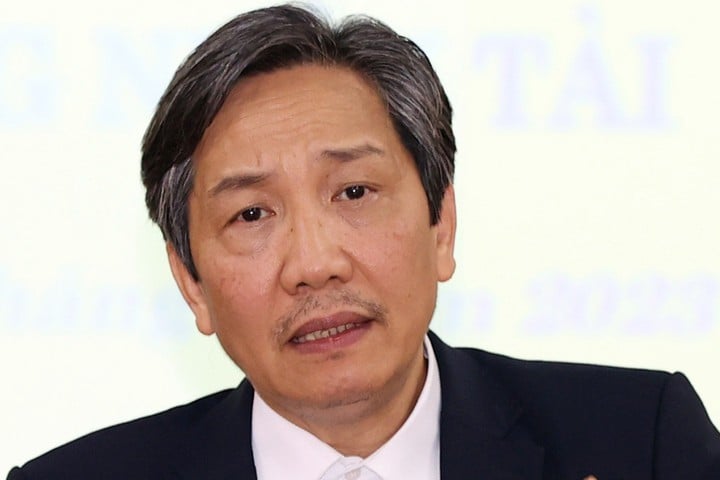




![[Photo] Prime Minister Pham Minh Chinh chairs Government Standing Committee meeting on Gia Binh airport project](https://vphoto.vietnam.vn/thumb/1200x675/vietnam/resource/IMAGE/2025/5/10/6d3bef55258d417b9bca53fbefd4aeee)




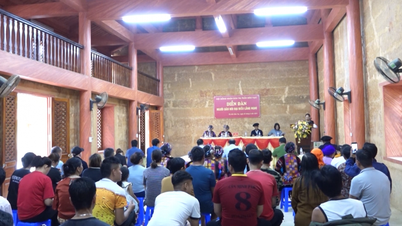
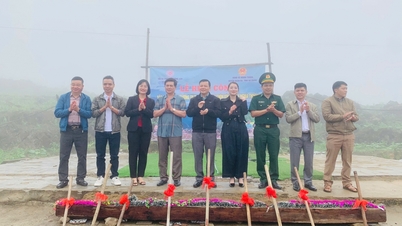
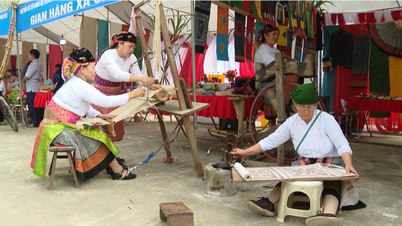


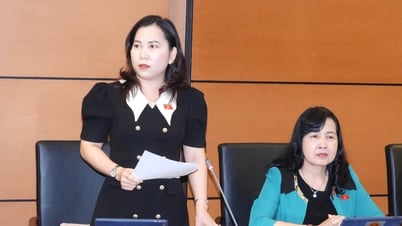
![[Video] Weather forecast tonight and tomorrow, May 11, 2025: Warning of thunderstorms and strong winds in the North - Lang Son Newspaper and Radio and Television Station](https://vphoto.vietnam.vn/thumb/402x226/vietnam/resource/IMAGE/2025/5/10/5a275872916744dc92e724ec900ee258)
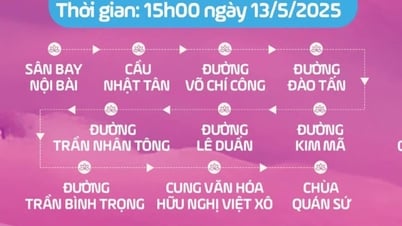
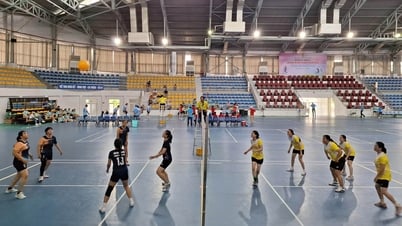









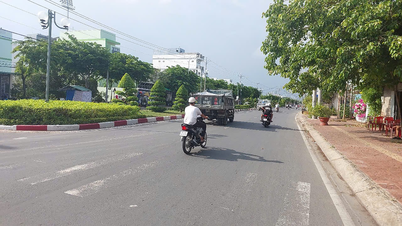






































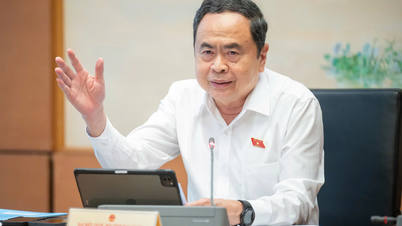










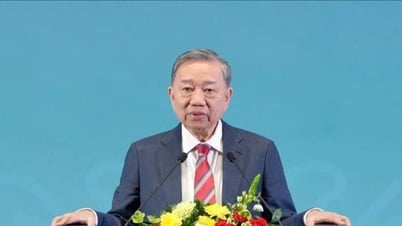



















Comment (0)